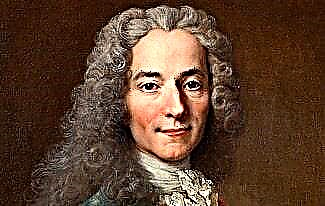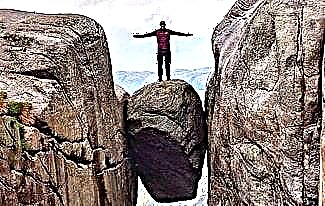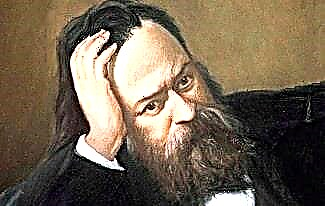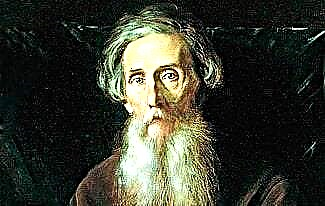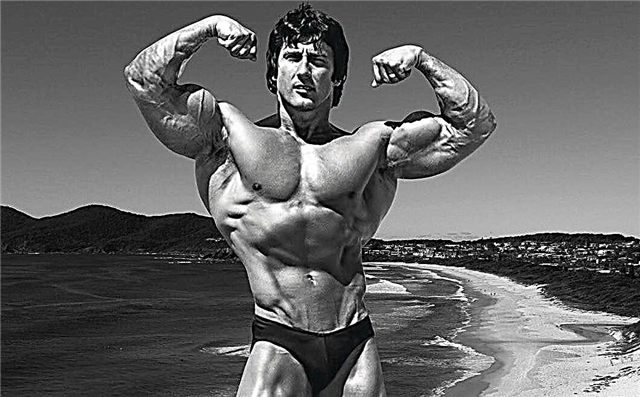Jean Coven, Jean Calvin (1509-1564) - French theologian, church reformer and founder of Calvinism. His main work is Instruction in the Christian Faith.
There are many interesting facts in Calvin's biography, which we will discuss in this article.
So, here is a short biography of John Calvin.

Calvin's biography
Jean Calvin was born on July 10, 1509 in the French city of Noyon. He grew up and was brought up in the family of the lawyer Gerard Coven. The mother of the future reformer died when he was still young.
Childhood and youth
Almost nothing is known about John Calvin's childhood. It is generally accepted that upon reaching the age of 14, he studied at one of the Parisian universities. By that time, he already had the position of chaplain.
The father did everything possible so that his son could move far up the church career ladder and become a financially secure person. During that period of his biography, Jean studied logic, theology, law, dialectics and other sciences.
Calvin liked his studies, as a result of which he spent all his free time reading. In addition, he periodically participated in logical and philosophical discussions, showing himself as a talented speaker. Later he gave sermons for some time in one of the Catholic churches.
As an adult, John Calvin continued to study law at his father's insistence. This was due to the fact that lawyers were making good money. And although the guy was making progress in the study of jurisprudence, immediately after the death of his father, he left the right, deciding to link his life with theology.
Calvin studied the works of various theologians, and also read the Bible and its commentaries. The longer he read Scripture, the more he doubted the truth of the Catholic faith. However, he did not initially oppose Catholics, but rather called for "small" reforms.
In 1532, two important events took place in the biography of John Calvin: he received his doctorate and published his first scientific treatise On Meekness, which was a commentary on the work of the thinker Seneca.
Teaching
Having become an educated person, Jean began to sympathize with Protestant views. In particular, he was deeply impressed by the work of Martin Luther, who rebelled against the Catholic clergy.
This led to the fact that Calvin joined the newly formed movement of supporters of the Reformation ideas, and soon, thanks to his oratorical talent, became the leader of this community.

According to the man, the key task of the Christian world was to eliminate the abuse of authority by priests, which happened quite often. The main tenets of Calvin's teachings were the equality of all people and races before God.
Soon, Jean openly declares his rejection of Catholicism. He also claims that the Most High himself called on his service in spreading the true faith. By that time, he had already become the author of his famous speech "On Christian Philosophy", which was sent to print.
The government and the clergy, who did not want to change anything, were disturbed by Calvin's insolent statements. As a result, the reformer began to be persecuted for his "anti-Christian" beliefs, hiding from the authorities with his associates.
In 1535, Jean wrote his major work, Instruction in the Christian Faith, in which he defended the French evangelicals. An interesting fact is that fearing for his life, the theologian chose to keep his authorship secret, so the first publication of the book was anonymous.
As the persecution became more active, John Calvin decided to leave the country. He went to Strasbourg in a roundabout way, planning to spend the night in Geneva for one day. Then he did not yet know that in this city he would stay much longer.
In Geneva, Jean met his followers, and also acquired a like-minded person in the person of the preacher and theologian Guillaume Farel. Thanks to Farel's support, he gained great popularity in the city, and later carried out a number of successful reforms.
In the fall of 1536, a public discussion was organized in Lausanne, which was attended by Farel and Calvin. It discussed 10 issues that represented the key principles of the reformation. When Catholics began to claim that evangelicals did not accept the views of the church fathers, Jean intervened.

The man announced that the evangelicals not only value the work of the church fathers more than the Catholics, but also know them much better. To prove this, Calvin built a logical chain on the basis of theological treatises, citing voluminous passages from them by heart.
His speech made a strong impression on everyone present, providing the Protestants with an unconditional victory in the dispute. Over time, more and more people, both in Geneva and far beyond its borders, learned about the new teaching, which was already then known as "Calvinism".
Later, Jean was forced to leave this city, due to the persecution of local authorities. At the end of 1538 he moved to Strasbourg, where many Protestants lived. Here he became the pastor of a reformatory congregation in which his sermons were extremely popular.
After 3 years, Calvin returned to Geneva. Here he finished writing his major work "Catechism" - a set of laws and postulates of "Calvinism" addressed to the entire population.
These rules were very strict and required a reorganization of the established orders and traditions. Nevertheless, the city authorities supported the norms of the "Catechism", having approved it at the meeting. But the undertaking, which seemed good, soon turned into a total dictatorship.
At that time, Geneva was essentially ruled by John Calvin himself and his followers. As a result, the death penalty increased, and many citizens were expelled from the city. Many people feared for their lives, as torture of prisoners became common practice.

Jean corresponded with his longtime acquaintance Miguel Servetus, who opposed the doctrine of the Trinity and criticized many of Calvin's postulates, supporting his words with a number of facts. Servetus was persecuted and ultimately captured by the authorities in Geneva, following Calvin's denunciation. He was sentenced to be burned at the stake.
John Calvin continued to write new theological treatises, including a large collection of books, speeches, lectures, etc. Over the years of his biography, he became the author of 57 volumes.
The leitmotif of the theologian's doctrine was the complete foundation of the teachings on the Bible and the recognition of the sovereignty of God, that is, the supreme authority of the Creator over everything. One of the main features of Calvinism was the doctrine of the predestination of man, or, in simple terms, of fate.
Thus, a person himself does not decide anything, and everything is already predetermined by the Almighty. With age, Jean became more devout, strict and intolerant of all those who did not agree with his opinion.
Personal life
Calvin was married to a girl named Idelette de Boer. Three children were born in this marriage, but they all died in infancy. It is known that the reformer outlived his wife.
Death
John Calvin died on May 27, 1564 at the age of 54. At the request of the theologian himself, he was buried in a common grave without erecting a monument. This was due to the fact that he did not want to worship himself and the appearance of any reverence to the place of his burial.
Calvin Photos






